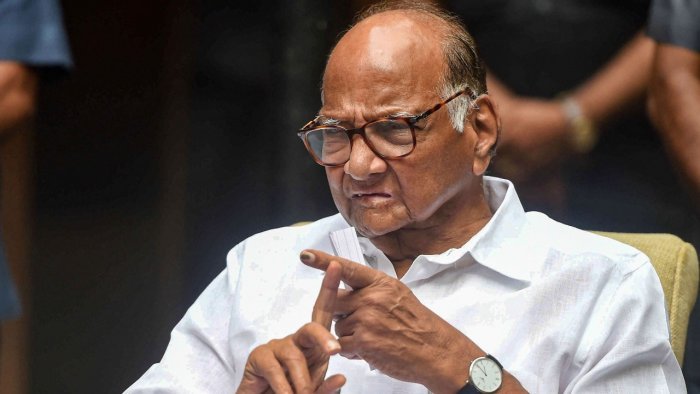Sharad Pawar, the chief of the Nationalist Congress Party (NCP), expressed his dissatisfaction with the inauguration of the new Parliament building. His statement came shortly after Prime Minister Narendra Modi officially inaugurated the new structure.
Pawar remarked that he had watched the event in the morning and was relieved that he did not attend in person. He expressed concern about what he witnessed and questioned whether the country was moving backward. He also raised doubts about the inclusivity of the event, asking if it was meant only for a limited group of people.
Moreover, Pawar criticized the proceedings, stating that they contradicted the vision of former Prime Minister Jawaharlal Nehru, who aimed to build a society based on modern science. He highlighted the government’s responsibility to invite the President and Vice President, pointing out that while Lok Sabha Speaker Om Birla was present, Vice President Jagdeep Dhankhar, the head of Rajya Sabha (Upper House of Parliament), was absent. Pawar perceived this as an indication that the event was organized for a select few.
Pawar also expressed disappointment that the opposition was not involved in discussions regarding the new Parliament building. He emphasized the special connection people have with the old Parliament and suggested that it would have been better if everyone had been engaged in the process.
Echoing Pawar’s sentiments, NCP leader Supriya Sule labeled the inauguration an “incomplete event” due to the absence of opposition representatives. She went on to assert that the absence of opposition participation signaled a lack of democracy in the country.
Earlier in the day, Prime Minister Narendra Modi unveiled a plaque and installed the ‘Sengol’ (a historic scepter) in the Lok Sabha chamber, officially dedicating the new Parliament building to the nation. However, the discontent expressed by Pawar and Sule highlights the perceived exclusion and lack of consultation with the opposition during the planning and execution of the event.
